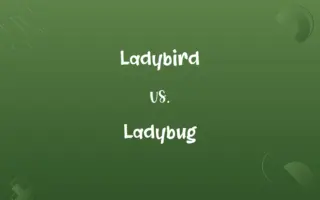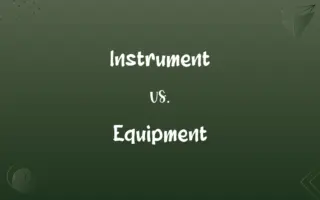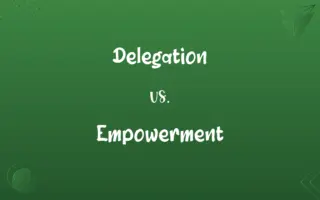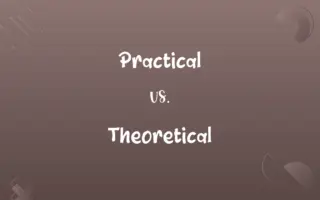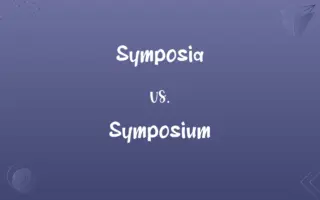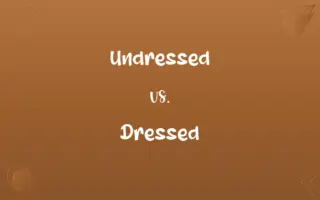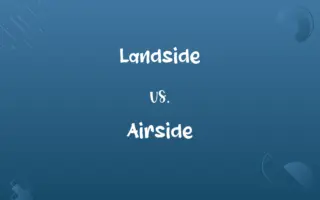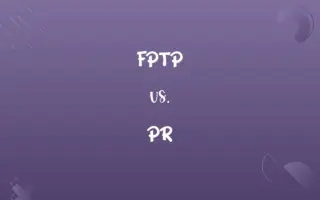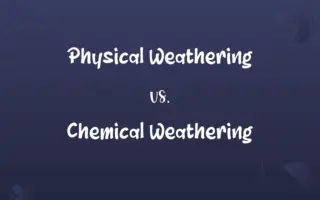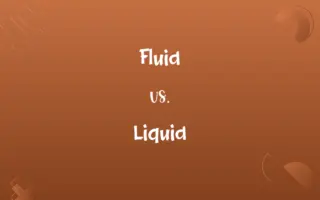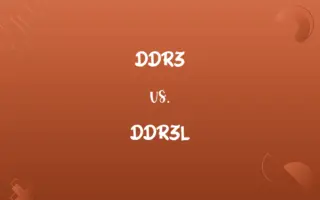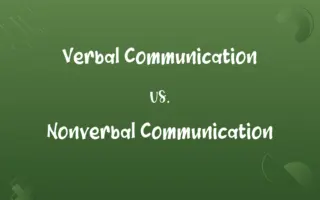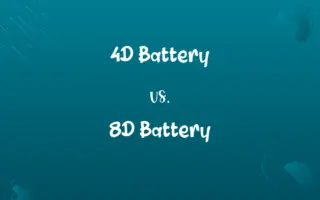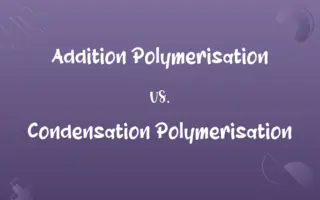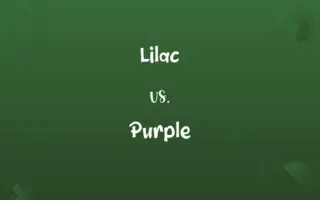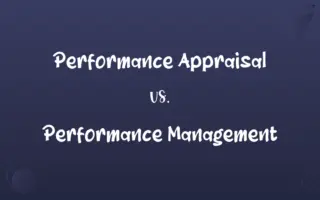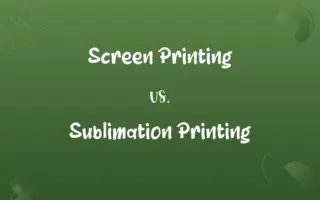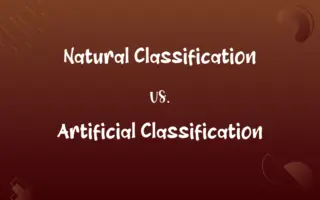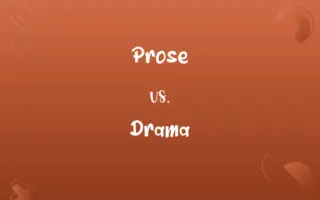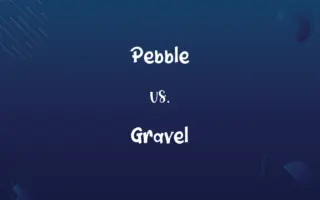Echopraxia vs. Echolalia: Know the Difference

By Shumaila Saeed || Updated on December 25, 2023
Echopraxia is the involuntary repetition of another person's actions, while echolalia is the involuntary repetition of another person's spoken words.
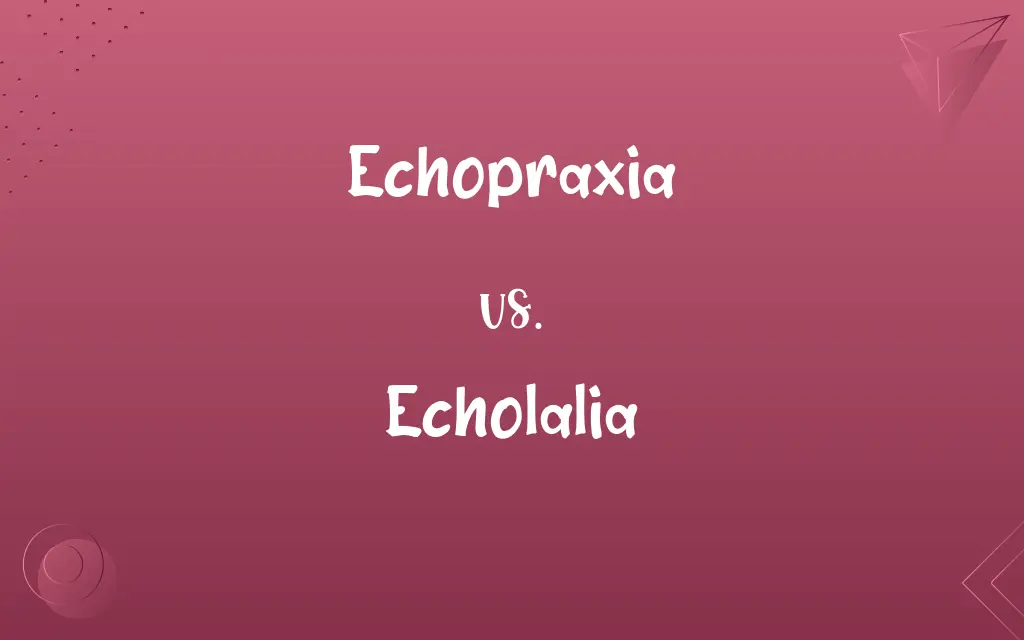
Key Differences
Echopraxia involves mimicking the physical movements or gestures of another person, often done involuntarily. Echolalia, in contrast, is characterized by repeating spoken words or phrases heard from others, also typically without conscious control.
Shumaila Saeed
Nov 28, 2023
People exhibiting echopraxia may replicate gestures or complex behaviors they observe, without understanding or intentional purpose. Those with echolalia repeat words or sentences they hear, often immediately after hearing them, regardless of the context or meaning.
Shumaila Saeed
Nov 28, 2023
Echopraxia can be seen in various neurological or psychiatric conditions, such as Tourette syndrome or autism spectrum disorder. Echolalia is commonly associated with conditions like autism, but can also occur in schizophrenia or after a stroke.
Shumaila Saeed
Nov 28, 2023
The treatment for echopraxia involves addressing the underlying condition, with therapy focusing on behavioral interventions. In echolalia, speech therapy is often employed to improve communication skills and reduce repetitive speech.
Shumaila Saeed
Nov 28, 2023
Both echopraxia and echolalia are forms of imitative behavior, but while echopraxia is physical mimicry, echolalia is verbal repetition, each with distinct implications for understanding and interaction in social or clinical contexts.
Shumaila Saeed
Nov 28, 2023
ADVERTISEMENT
Comparison Chart
Definition
Involuntary repetition of another's actions.
Involuntary repetition of another's spoken words.
Shumaila Saeed
Nov 28, 2023
Associated Conditions
Often seen in autism, Tourette syndrome.
Common in autism, can occur in schizophrenia, post-stroke.
Shumaila Saeed
Nov 28, 2023
Treatment Focus
Behavioral interventions, addressing underlying conditions.
Speech therapy, improving communication skills.
Shumaila Saeed
Nov 28, 2023
Implication
Reflects on motor mimicry and physical behavior.
Pertains to verbal communication and language processing.
Shumaila Saeed
Nov 28, 2023
ADVERTISEMENT
Echopraxia and Echolalia Definitions
Echopraxia
Echopraxia is a neurological phenomenon where individuals replicate others' actions.
Echopraxia led her to involuntarily clap when she saw others clapping.
Shumaila Saeed
Nov 24, 2023
Echolalia
Echolalia involves echoing words without necessarily understanding their meaning.
Despite his echolalia, he often didn’t comprehend the phrases he repeated.
Shumaila Saeed
Nov 24, 2023
Echopraxia
Echopraxia involves mirroring physical behaviors without conscious control.
The child with autism showed echopraxia by imitating his sibling’s movements.
Shumaila Saeed
Nov 24, 2023
Echolalia
Echolalia is the automatic repetition of vocalizations made by another person.
His echolalia caused him to repeat the last word of every sentence he heard.
Shumaila Saeed
Nov 24, 2023
Echopraxia
Echopraxia is the involuntary imitation of another person's actions.
The patient with echopraxia mimicked the doctor's hand movements.
Shumaila Saeed
Nov 24, 2023
ADVERTISEMENT
Echolalia
Echolalia refers to the involuntary mimicry of words or phrases.
The child with echolalia echoed every question asked by the teacher.
Shumaila Saeed
Nov 24, 2023
Echopraxia
Echopraxia refers to the compulsive repetition of observed behaviors.
He exhibited echopraxia by repeatedly copying his teacher’s gestures.
Shumaila Saeed
Nov 24, 2023
Echolalia
Echolalia is a symptom often seen in autism spectrum disorders.
Her echolalia was evident when she repeated entire sentences from TV shows.
Shumaila Saeed
Nov 24, 2023
Echopraxia
Echopraxia can be a symptom of certain psychiatric or neurological disorders.
In his case of Tourette syndrome, echopraxia was a prominent symptom.
Shumaila Saeed
Nov 24, 2023
Echolalia
Echolalia can occur in various speech and language disorders.
After his stroke, he developed echolalia, repeating phrases spoken to him.
Shumaila Saeed
Nov 24, 2023
Echopraxia
The involuntary imitation of movements made by others, sometimes occurring in people with schizophrenia and certain other mental disorders.
Shumaila Saeed
Oct 19, 2023
Echolalia
The repetition of words or phrases spoken by others, often occurring in people with autism spectrum disorder and certain other mental disorders.
Shumaila Saeed
Oct 19, 2023
Echopraxia
The involuntary repetition or imitation of the observed movements of another.
Shumaila Saeed
Oct 19, 2023
Echolalia
(clinical psychology) The immediate, involuntary, and repetitive echoing of words or phrases spoken by another.
Shumaila Saeed
Oct 19, 2023
Echolalia
An infant's repetitive imitation of vocal sounds spoken by another person, occurring naturally during childhood development.
Shumaila Saeed
Oct 19, 2023
Echolalia
Any apparently meaningless, repetitious noises, especially voices.
Shumaila Saeed
Oct 19, 2023
Echolalia
(psychiatry) mechanical and meaningless repetition of the words of another person (as in schizophrenia)
Shumaila Saeed
Oct 19, 2023
Repeatedly Asked Queries
Are echopraxia and echolalia conscious behaviors?
No, they are typically involuntary and not under conscious control.
Shumaila Saeed
Nov 28, 2023
What causes echopraxia?
Echopraxia can be caused by neurological disorders like Tourette syndrome or autism.
Shumaila Saeed
Nov 28, 2023
How is echolalia managed?
Management often involves speech therapy to improve communication skills.
Shumaila Saeed
Nov 28, 2023
Can adults develop echopraxia?
Yes, adults can develop echopraxia, often due to neurological conditions or brain injuries.
Shumaila Saeed
Nov 28, 2023
What is echopraxia?
Echopraxia is the involuntary replication of another person's actions or gestures.
Shumaila Saeed
Nov 28, 2023
What causes echolalia?
Echolalia is often seen in autism spectrum disorders but can also result from brain injuries or developmental delays.
Shumaila Saeed
Nov 28, 2023
Are there medications for echopraxia?
Medications may be used if echopraxia is part of a broader neurological or psychiatric condition.
Shumaila Saeed
Nov 28, 2023
Does echolalia improve with age?
In some cases, echolalia can decrease as language skills develop, especially in children.
Shumaila Saeed
Nov 28, 2023
What is echolalia?
Echolalia is the involuntary repetition of words or phrases spoken by others.
Shumaila Saeed
Nov 28, 2023
Can echolalia occur in normal language development?
Yes, echolalia can be a normal stage in early childhood language development.
Shumaila Saeed
Nov 28, 2023
Can echopraxia be treated?
Treatment focuses on the underlying condition and may involve behavioral therapy.
Shumaila Saeed
Nov 28, 2023
Is echolalia always a sign of a disorder?
Not always; it can be a normal part of language development in young children.
Shumaila Saeed
Nov 28, 2023
Does echopraxia affect social interactions?
Yes, echopraxia can impact social interactions due to unintentional mimicking of others' actions.
Shumaila Saeed
Nov 28, 2023
Can echolalia be a coping mechanism?
Sometimes, echolalia is used by individuals as a way to process and understand speech.
Shumaila Saeed
Nov 28, 2023
Is echopraxia a form of communication?
Echopraxia is not typically a form of communication but rather an involuntary action.
Shumaila Saeed
Nov 28, 2023
What professionals diagnose echopraxia?
Neurologists, psychiatrists, or psychologists typically diagnose echopraxia.
Shumaila Saeed
Nov 28, 2023
Is there a cure for echolalia?
There is no cure, but therapy can help manage and reduce echolalia.
Shumaila Saeed
Nov 28, 2023
Can echopraxia occur in sleep?
Echopraxia generally occurs when the individual is awake and observing others.
Shumaila Saeed
Nov 28, 2023
Are there specific tests for echolalia?
Diagnosis typically involves observation and evaluation by a speech therapist or a neurologist.
Shumaila Saeed
Nov 28, 2023
Is echolalia limited to spoken language?
Echolalia primarily involves the repetition of spoken language.
Shumaila Saeed
Nov 28, 2023
Share this page
Link for your blog / website
HTML
Link to share via messenger
About Author
Written by
Shumaila SaeedShumaila Saeed, an expert content creator with 6 years of experience, specializes in distilling complex topics into easily digestible comparisons, shining a light on the nuances that both inform and educate readers with clarity and accuracy.


